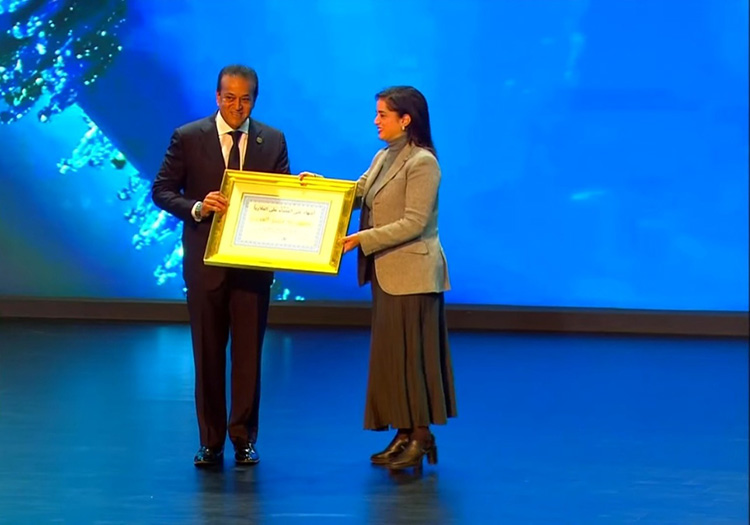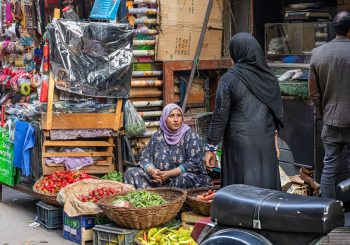The World Health Organization (WHO) has certified Egypt as malaria-free, with Khaled Abdel Ghaffar, the Deputy Prime Minister and Minister of Health and Population, receiving an official certificate to commemorate this significant achievement.
“Malaria is as old as Egyptian civilization itself, but the disease that plagued pharaohs now belongs to its history,” Tedros Adhanom Ghebreyesus, WHO chief said, highlighting that this achievement reflects a century of dedication from the Egyptian government and its people.
Globally, a total of 44 countries and one territory have been certified malaria-free. Egypt is the first country to reach this milestone since 2010 and the third in the Mediterranean region, following the United Arab Emirates (UAE) and Morocco.
Malaria, a life-threatening disease transmitted by certain types of mosquitoes, poses significant risks to young children, infants, pregnant women, travelers, and individuals with HIV or AIDS. Symptoms can range from mild, such as fever, chills, and headaches, to severe, including fatigue, confusion, seizures, and difficulty breathing. While predominantly found in tropical regions, malaria is both preventable and treatable.
According to WHO, in 2022 there were an estimated 249 million malaria cases and 608,000 deaths worldwide across 85 countries. The African Region bore a disproportionate share of this burden, accounting for 94 percent of cases, or 233 million, and 95 percent of deaths, totaling 580,000.
WHO grants malaria elimination certification when a country has proven, beyond a reasonable doubt, that indigenous malaria transmission by Anopheles mosquitoes, the main transmitters of malaria to humans, has been interrupted nationwide for at least three consecutive years and has demonstrated the capacity to prevent its re-establishment.
Egypt’s successful eradication of malaria follows more than a century of efforts to eliminate a disease that has afflicted the nation since ancient times, as traces of genetic evidence of malaria were found in Egyptian mummies as far back as 4,000 B.C.
With a significant portion of the population residing along the banks of the Nile River and malaria rates soaring to as high as 40 percent in the 1920s, the Egyptian government recognized the situation’s urgency. The state banned the cultivation of rice and crops near residential areas to minimize human contact with mosquitoes and curb the spread of malaria.
In 1930, malaria was officially classified as a notifiable disease, leading to the establishment of the nation’s first malaria control station dedicated to diagnosis, treatment, and surveillance. However, by 1942, malaria cases in Egypt had spiked to more than 3 million as a result of the Second World War population displacement and the disruption of medical supplies and services.
Egypt controlled the malaria outbreak by establishing 16 treatment divisions and recruiting more than 4000 health workers.
In 1969, the completion of the Aswan Dam introduced a new malaria threat to Egypt, as the dam’s stagnant waters became ideal breeding grounds for mosquitoes. In response, Egypt, working in partnership with Sudan, initiated an extensive vector control program and strengthened public health surveillance to identify and address potential malaria outbreaks quickly.
With malaria under control by 2001, Egypt’s Ministry of Health and Population redirected its efforts toward preventing the resurgence of the disease and its local transmission.
Egypt continues to this day to provide malaria diagnosis and treatment free of charge to all Egyptians and residents, regardless of their legal status.
Health professionals across Egypt are trained to detect and screen for malaria, including at border crossings, in coordination with Sudan and neighboring countries, helping to prevent the resurgence of local transmission and positioning the nation for official malaria-free certification.
“Receiving the malaria elimination certificate today is not the end of the journey but the beginning of a new phase,” Egypt’s Deputy Prime Minister, Khaled Abdel Ghaffar, said. “We must now work tirelessly and vigilantly to sustain our achievement […] our continued multisectoral efforts will be critical to preserving Egypt’s malaria-free status.”
Egypt’s malaria-free status is a notable milestone in public health that follows years of diligent efforts, with health officials at its center, continuously focusing on prevention to ensure that malaria stays in the past.







Comments (0)